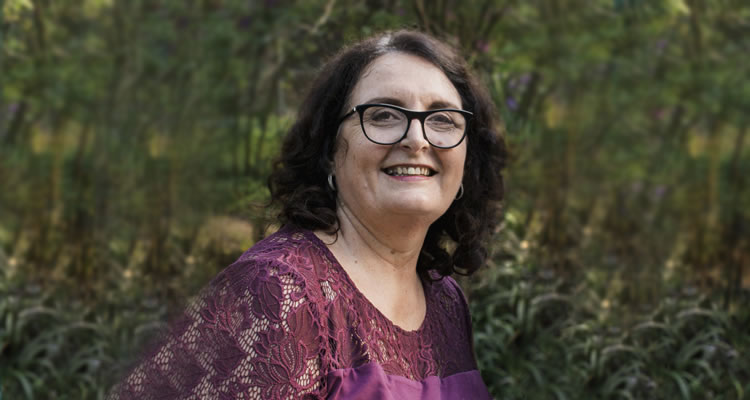Living with Anaphylaxis: Debbie’s story
Date published: 29 Jun 2021
Author: Anna Sale
In April we caught up with Debbie Jackson who has worked at HealthShare NSW for 12 years as a Financial Accountant at our Newcastle Service Centre and lives with severe Anaphylaxis.
“I have always had allergies. As a child, I knew that sometimes I would start to cough or get itchy if I ate something that caused a reaction. My parents were careful about what I ate and did the best they could with the information they had available to them.
Everyone in the family knew that I couldn’t have coconut, sesame, nuts, tomato or pineapple. Mum cooked most of our food, so managing the allergy wasn’t so difficult. I knew that if I swam in the ocean I must quickly shower in fresh water as soon as I was out, to ease the hives that would appear all over my face and body.
As I grew older things other allergens started to cause more severe reactions. One sesame seed on a bread crust would result in swollen mouth and tongue, followed by vomiting. A tiny bit of coconut caused my throat to itch and I would start to feel really unwell.
It wasn’t until my 40s that I realised I would start to cough if I could smell coconut and itch if I was close to it. I had been having regular testing and this showed that the degree of reaction to exposure to some things had become so severe that I was diagnosed with Anaphylaxis, which is a life threatening allergic reaction and also a recognised disability in Australia. The two things I am most allergic to are coconut and Clinical Contrast (the injection you get when you have a CT scan). If I have a severe reaction to these, I could lose my life.
From that day, I began carrying two Epipen Auto Injectors and family, friends and colleagues were trained to use them in case of emergency. Eating out and travel plans now came with consequences. Many body creams, shampoos and perfumes have a base of coconut and being close to people who used these products would cause me to start feeling as though I was choking.
Being in the office started to cause some problems too. On a few occasions when somebody was heating their lunch in the microwave I would start coughing and choking at my desk – a room away! It didn’t take long before everyone knew ‘the coconut lady’. St John’s Ambulance came out for Epipen training and they advised that the coconut can get into the air conditioning and that’s why I react, even from a distance.
I am extremely grateful that HealthShare NSW management and staff have recognised the seriousness of the situation and put things in place to keep me safe. Level 2 East at Charlestown is a coconut free zone; there are signs at all entry points and in the kitchens and on WH&S noticeboards. There are also posters to advise the procedure to follow for Anaphylaxis and how to administer an Epipen.
COVID-19 and isolation rules have been an absolute blessing for me. I have not had to worry about accidental exposure since early March and it has been the silver lining on an otherwise terrible time.”
Follow us
Follow HealthShare NSW on LinkedIn and Facebook.

